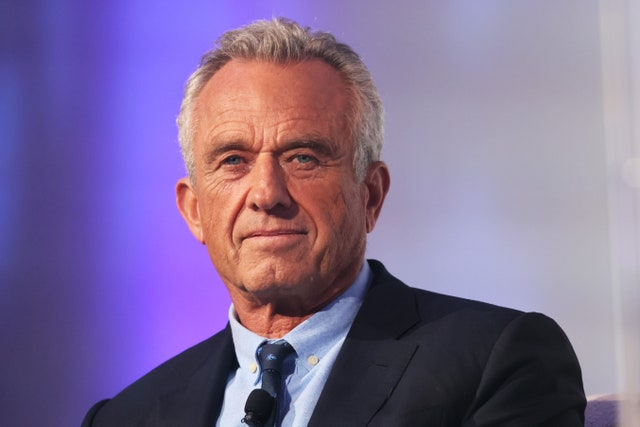In a political landscape often dominated by familiar faces and partisan divides, Robert F. Kennedy Jr. emerges as a compelling alternative, igniting curiosity and sparking discussions about the potential for an independent candidate to disrupt the traditional two-party system. With the upcoming presidential rematch failing to evoke widespread enthusiasm among Americans, many are turning their attention to figures like Kennedy, drawn in by his illustrious name and the promise of a fresh approach to governance.
Born into one of America’s most prominent political dynasties, Robert F. Kennedy Jr. carries with him a legacy of public service and activism. As the son of the late Senator Robert F. Kennedy and the nephew of President John F. Kennedy, he inherits a name that resonates deeply with many Americans, evoking memories of an era characterized by idealism, social change, and political courage.
However, Kennedy’s decision to pursue the presidency as an independent candidate is not solely reliant on his familial connections. A prominent environmental lawyer, author, and activist, Kennedy has dedicated much of his life to advocating for causes ranging from environmental conservation to social justice. His commitment to combating climate change, in particular, has earned him widespread recognition and respect within progressive circles.
But what drives Kennedy to seek the highest office in the land? At the heart of his presidential bid lies a desire to challenge the status quo and offer a viable alternative to the entrenched partisanship that has come to define American politics. Frustrated by what he perceives as a lack of meaningful action on pressing issues such as climate change, income inequality, and healthcare reform, Kennedy sees his candidacy as an opportunity to inject fresh ideas and principled leadership into the national discourse.
Kennedy’s platform reflects his deep-seated convictions and his belief in the transformative power of grassroots activism. Central to his agenda is a commitment to tackling the existential threat of climate change through ambitious green initiatives, renewable energy investment, and environmental regulation. Additionally, Kennedy advocates for comprehensive healthcare reform, including the expansion of Medicare and the implementation of universal coverage, as well as measures to address systemic inequalities and promote social justice.
Despite the formidable challenges that lie ahead, Kennedy’s candidacy has struck a chord with many disillusioned voters who yearn for a departure from politics as usual. His willingness to challenge the establishment and his unwavering dedication to progressive values have galvanized a diverse coalition of supporters, ranging from environmental activists to disaffected moderates.
However, Kennedy’s path to the presidency is far from certain. As an independent candidate, he faces significant obstacles, including limited access to campaign resources and the entrenched partisan loyalties of many American voters. Moreover, the history of independent presidential candidates in the United States is fraught with difficulty, with few managing to overcome the formidable barriers to electoral success.
Nevertheless, Kennedy’s campaign represents more than just a quixotic quest for the White House. It is a testament to the enduring legacy of the Kennedy family and a testament to the enduring belief that politics can be a force for positive change. Whether or not he ultimately succeeds in his presidential ambitions, Robert F. Kennedy Jr.’s candidacy serves as a reminder that the pursuit of a better, more just society is a noble endeavor worthy of our collective support and admiration.






